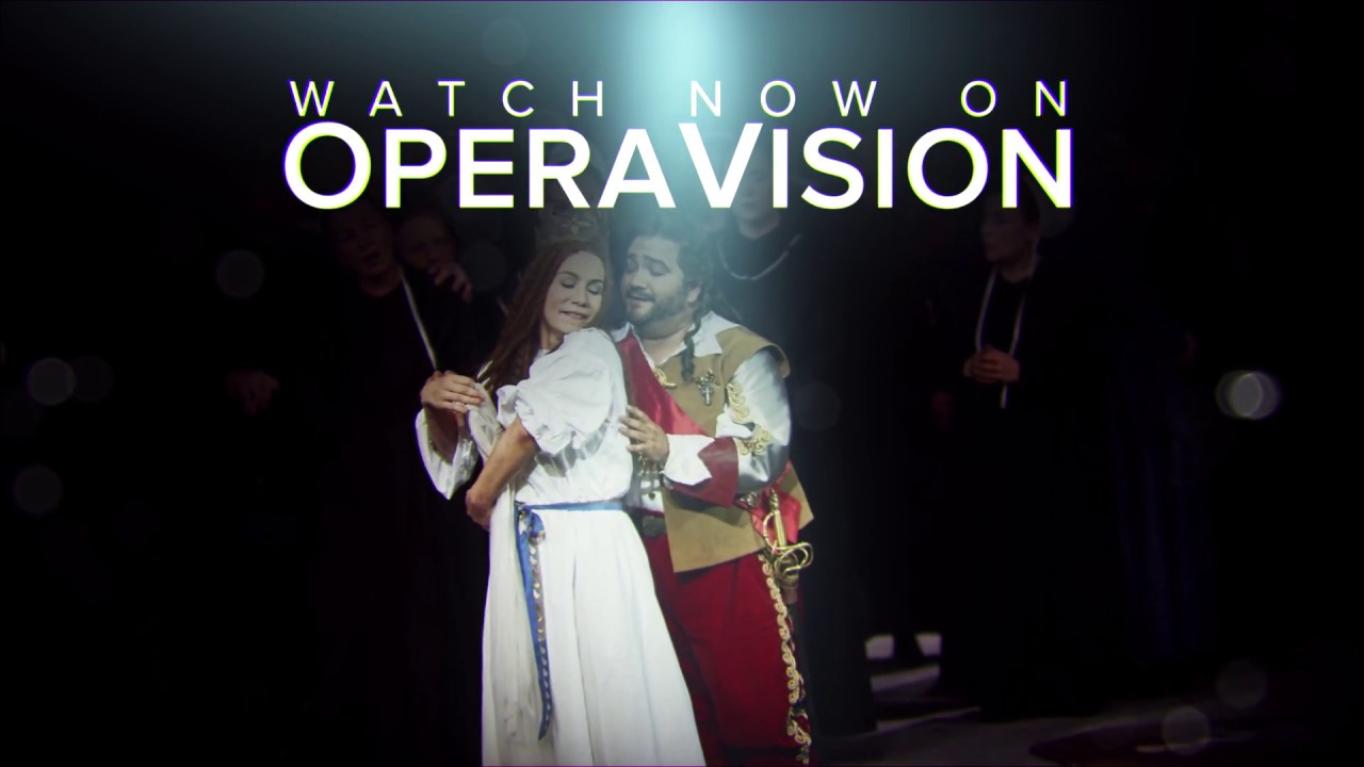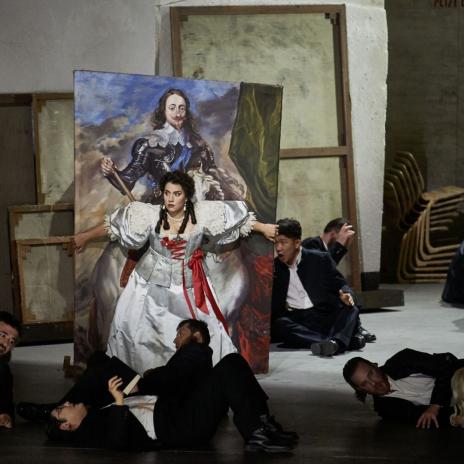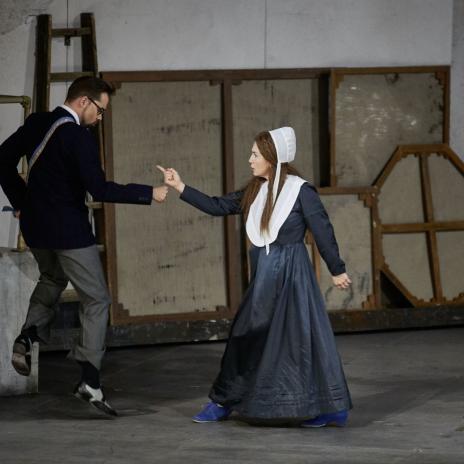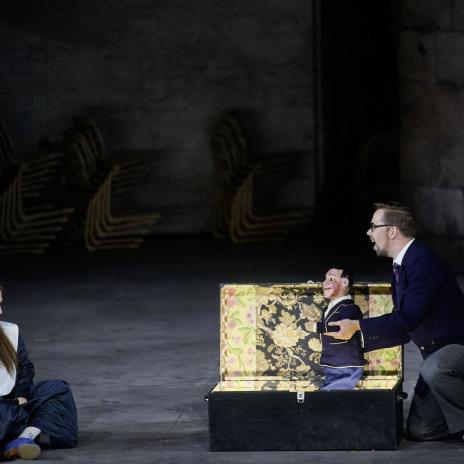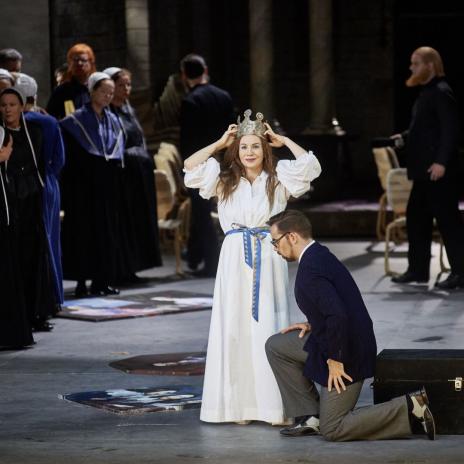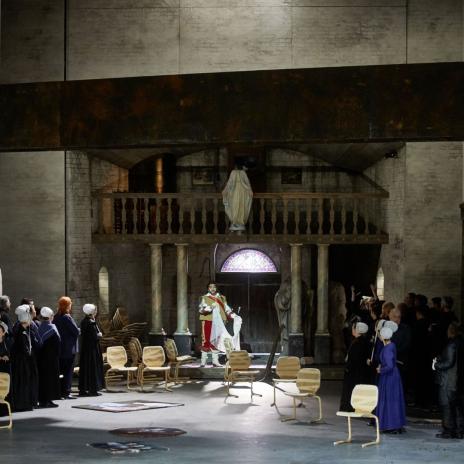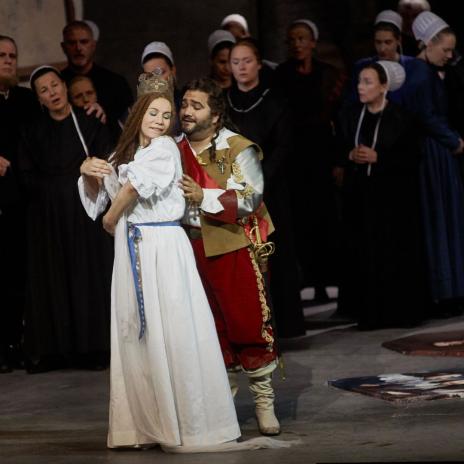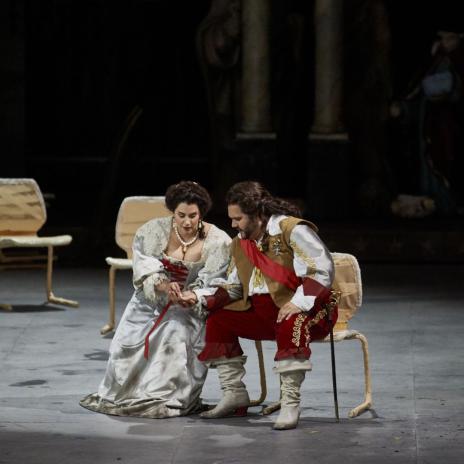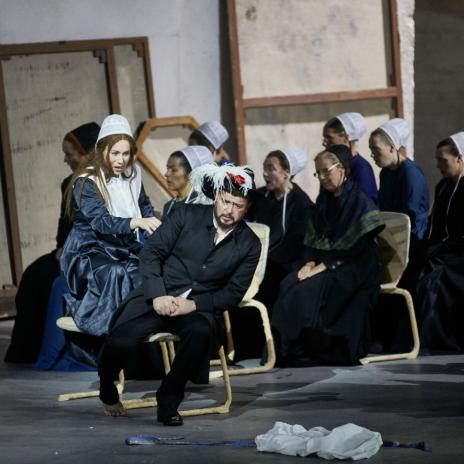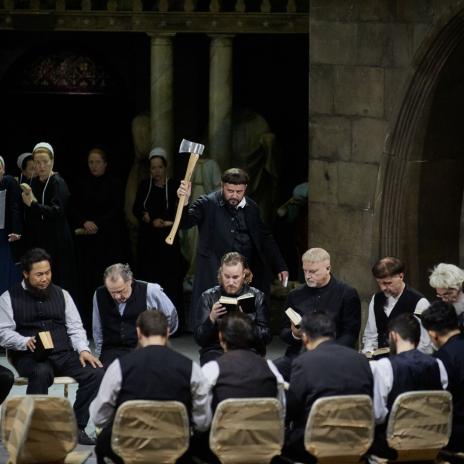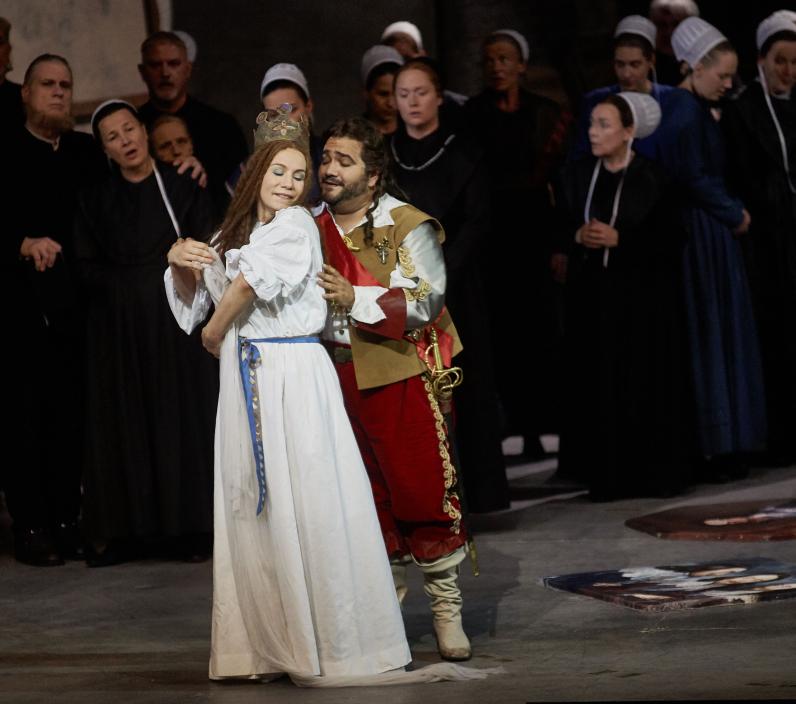

Elvira’s dream factory
Unleashing Bellini’s musical creative power
In I puritani Bellini reinvented himself. There were two key factors behind this. Firstly, for the first time since his breakthrough with Il pirata (1827) Bellini had to manage without Felice Romani, with whom he had composed seven of his nine operas to this date. Bellini’s word-focused compositional approach had consistently taken inspiration from the elegance of Romani’s verse, who had provided him with well-thought-out and well-structured libretti through his adaptations of French and Italian dramas and novels.
After a row with Romani over who was to blame for the fiasco of Beatrice di Tenda (1833), Bellini decided to write his new opera for Paris’s Théâtre-Italien in collaboration with Carlo Pepoli, an exiled Italian poet living in Paris. Pepoli had no experience of the theatre whatsoever and so was not an equal partner. Romani’s dramatic calculation and rational control over the creative process were absent. This helped to create an unbridled, even ecstatic unleashing of Bellini’s musical creative power, that took on a life of its own and time after time seems to transcend the logic of the stage.
Secondly, the blurring of the melodic and harmonic boundaries in Bellini’s composition further heightened the ‘oceanic feeling’. In this, the only one of his operas not written for Italy, Bellini broadened his creative perspective to tap into the post-Classical orchestral culture that had taken on considerable significance in France even within the operatic tradition. It is the instrumental fabric that creates a motivic and melodic relationship between the individual numbers. The differentiation and expansion of the soundscape by means of the spatial arrangement of solo voices, choral and instrumental groups beyond the stage area serves to create almost impressionistic effects.
Transcending the puritan world
We can see also that the orchestra is involved in Bellini’s compositional strategy, which is more concerned with the ecstatic heightening and enchantment of events on stage than with authenticating those events from a dramatic point of view. Bellini’s success in transcending the world of the Puritans, characterised as it was by its bans on music, dance and theatre, through the sheer intoxicating beauty of his music, is surely the most disarming gift ever bestowed upon those iconoclasts. As a result, this opera, in which Bellini seems to approach the aesthetic of reality-saturated historical dramas most closely, is, in fact, the only truly fantastical, even fabulous opera he ever wrote.
For the sake of this very paradox, our production must find a way of putting the historical imagery of the English Civil War to creative use, if there is to be a way of communicating its fantastical defamiliarisation coherently on stage. The music achieves a monumental coup of the imagination in repeatedly managing to reinterpret events on stage on its own terms, bending them to its own will. It is tempting to say that the score subjects the narrative of the libretto to its own dreamlike vision, in its search for hallucinatory wish-fulfilment. The ‘madness’ of Elvira, her schizophrenia, is not merely a critical element of the plot. The flight from an unbearable reality into fantasy is not so much an externally narrated plot element as a device used to justify the narrative form while taking place before the audience’s very eyes. The dramatic composition of I puritani shows us Elvira’s dream factory at work.
No sooner have the Puritan religious warriors announced their intention to ‘turn the camp of the Stuarts to ashes’ than the drawbridge of the still besieged castle is lowered to offer a warm welcome to, of all people, a hated enemy soldier; all this in the very middle of the bitter civil war that stretches across all three of the opera’s acts. The librettist does not even feel the need to provide Arturo with the fake identity traditional in such contexts.
Doublings and dreamlike thinking
A ‘second bridegroom’, in the shape of Arturo, is now suddenly at hand—and this time he is the desired groom. Shortly afterwards Elvira’s father hands Arturo a safe-conduct that will allow the couple to leave the fortress. In the same breath Elvira’s ‘first father’ explains why he will not be attending the wedding, at which Giorgio is to take his place as ‘second father’: he must present a female political prisoner at Parliament in London, which amounts to a death sentence. Elvira’s dream crashes down around her, this prisoner, draped as ‘second bride’ in Elvira’s extravagantly wafting veil now swoops off into the freedom she has so longed for.
So it is that on a psychological level all the inconsistencies that initially seem to disqualify the opera’s narrative prove to be remarkably coherent. The ‘dreamlike thinking’, to use Freud’s terminology, of this opera rests in Elvira’s identification with the prisoner on the basis of the common existential threat represented by her father’s authority: the underlying desire is to escape his power.
Drawn from an extended article by Sergio Morabito that first appeared in the programme book in July 2016.
